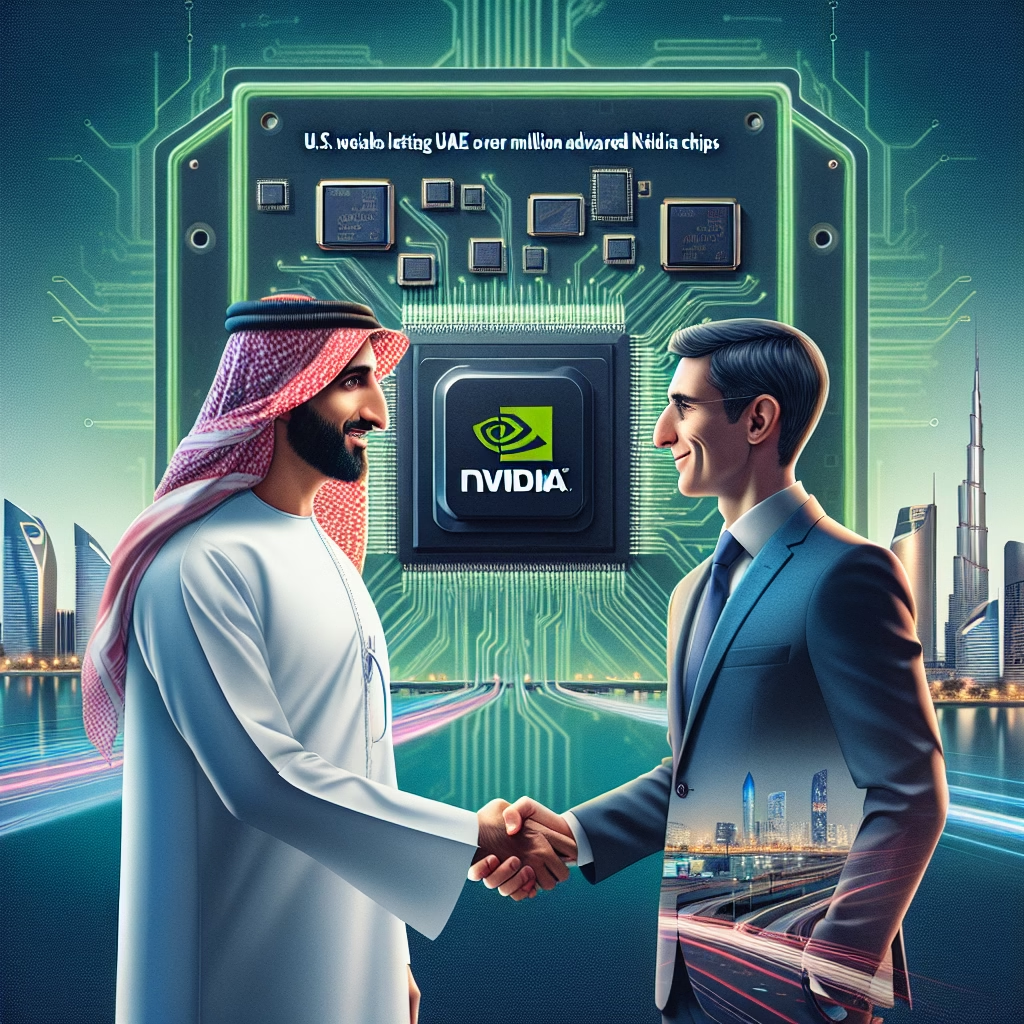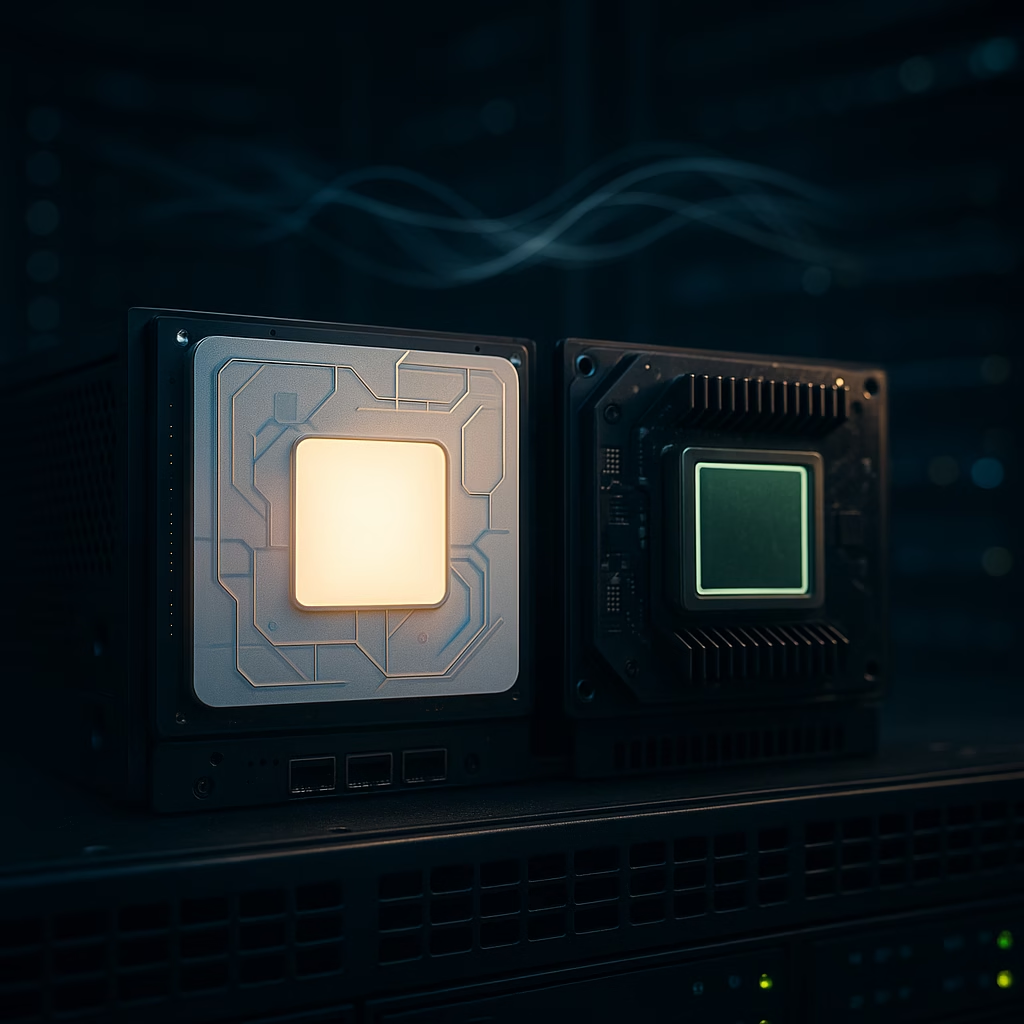U.S. Considers Allowing UAE to Purchase Over a Million Advanced Nvidia AI Chips
Introduction: U.S.-UAE Tech Relations at a Crossroads
In a move that underscores the growing global demand for advanced artificial intelligence (AI) technologies, the United States is weighing whether to allow the United Arab Emirates (UAE) to purchase more than one million advanced Nvidia AI chips. This potential deal could reshape the international dynamics of technological power, as Washington balances the competing imperatives of national security and fostering strategic alliances.
The proposed acquisition would include top-tier Nvidia chips, including those tailored for AI data centers and high-performance computing. If approved, this would mark one of the most significant tech deals in the AI sector between the U.S. and the Middle East.
What’s at Stake: AI Chips as Strategic Assets
AI chips like Nvidia’s H100 and A100 models are among the most cutting-edge processors available in today’s market. These chips are critical for:
- Training large language models (LLMs), such as those used in AI chatbots and machine learning tools
- High-performance computing (HPC) projects related to climate modeling, scientific research, and defense technology
- Supporting generative AI applications, including image generation, video synthesis, and language translation
The chips are not just commercial devices — they are increasingly seen as strategic tools that can provide countries with transformative capabilities. The U.S. government is cautious about permitting such powerful tools to be sold internationally without oversight, especially amid concerns over dual-use technologies that could have military applications.
Why the UAE is Interested in AI Chips
The UAE has been positioning itself as a hub for artificial intelligence innovation and digital transformation. Through government-backed initiatives such as the UAE Artificial Intelligence Strategy 2031 and the creation of advanced technology groups like G42, the country is investing heavily in data centers, cloud infrastructure, and supercomputing.
The acquisition of Nvidia chips would elevate the UAE’s capacity in:
- Developing proprietary AI models tailored to Arabic-speaking audiences and regional use cases
- Becoming a global AI player capable of collaborating with U.S., European, and Asian tech firms
- Attracting foreign direct investment (FDI) and talent in the AI domain through infrastructure and research capabilities
G42 — an AI-focused tech company supported by the Abu Dhabi government — is reportedly central to this deal. While G42 has recently cut some ties with Chinese firms, its historical connections to Beijing raise red flags for U.S. officials.
U.S. Concerns Over National Security and Tech Transfers
The Biden administration is approaching the proposed sale with caution. Despite the UAE being a close ally, the U.S. worries about the chips being diverted or reverse-engineered, especially amid broader tensions with China.
Key concerns include:
- Technical leakage: Could AI chip architectures somehow be accessed or transferred to nations like China?
- Strategic autonomy: Would the UAE use the chips independently, or employ them in ways that could affect U.S. data or defense alliances?
- Compliance with export control laws: Advanced chips are covered by U.S. Export Administration Regulations (EAR) that often require special licenses
Officials are also reviewing whether any parts of the deal could reach entities still associated with Chinese firms. Although G42 has ended partnerships with Huawei and Chinese biotech company BGI, regulators want to ensure that no residual links compromise U.S. security interests.
The Role of Nvidia: Catalyst or Cautionary Player?
Nvidia stands to benefit significantly from such a large-scale sale. As one of the world’s leading suppliers of AI hardware, the company has seen exponential demand for its H100 and A100 chips globally, driving its market value to new heights.
However, Nvidia must toe a fine line. Being complicit in a deal that later raises geopolitical or ethical concerns could impact its brand and future licensing.
For Nvidia, the key points are:
- Revenue Generation: A deal of this magnitude could bring in billions of dollars
- Regulatory Compliance: Nvidia has to secure U.S. government approval before delivering chips with potential military or sensitive applications
- Global Partnerships: Facilitating this sale could open doors to future collaborations with sovereign wealth funds and government tech initiatives
What Comes Next? Strategic Calculations in D.C.
The deal is currently under review by several federal agencies, including the Department of Commerce and the State Department. These institutions are examining the:
- Legal frameworks around export controls like the EAR and International Traffic in Arms Regulations (ITAR)
- National security reviews typically led by bodies like the Committee on Foreign Investment in the United States (CFIUS)
- Geopolitical implications of giving a foreign nation access to unprecedented AI compute power
While no final decision has been announced, insiders suggest the U.S. may attach strict conditions to any approval, such as:
- Restrictions on chip resale
- Mandatory security clauses on data usage
- Periodic audits or inspections of how the chips are used within UAE data centers
Why This Matters Globally
If the U.S. permits this deal, it could set a new precedent for global tech diplomacy. AI processors are becoming the new oil, with countries, companies, and even institutions vying for access. A U.S.-UAE agreement could:
- Strengthen the U.S. alliance with Gulf nations poised to lead in AI development
- Establish export rules for AI hardware that balance collaboration with caution
- Send a message to rivals like China about the geopolitical value of controlled AI advancement
Implications for AI Development
Allowing the UAE to access massive quantities of Nvidia chips will significantly speed up AI research and development in the Middle East. This may inspire:
- Regional talent growth in fields like data science and machine learning
- Expanded local AI startups leveraging hardware previously unavailable to them
- Global competition for chip acquisition as more countries and enterprises look to build sovereign AI capabilities
Conclusion: A High-Stakes Decision with Global Repercussions
The decision over whether the United States should allow the UAE to acquire more than one million Nvidia AI chips represents far more than a business deal. It highlights the delicate balance between empowering allies and preserving national security in an era where AI dominance could determine global influence.
As deliberations continue in Washington, the world watches closely. What appears to be a dispute over hardware could ultimately define the shape of global tech alliances for the next decade.
Stay tuned as we cover updates in this evolving story of innovation, diplomacy, and digital power.< lang="en">







Leave a Reply